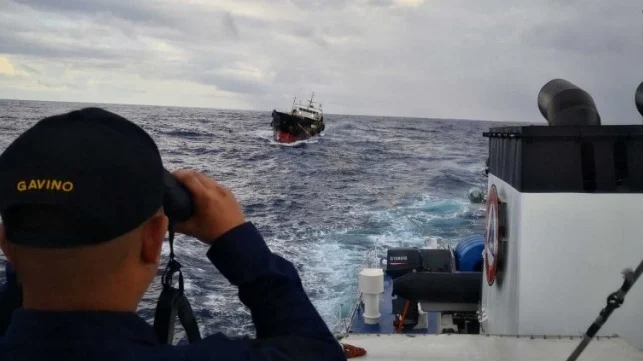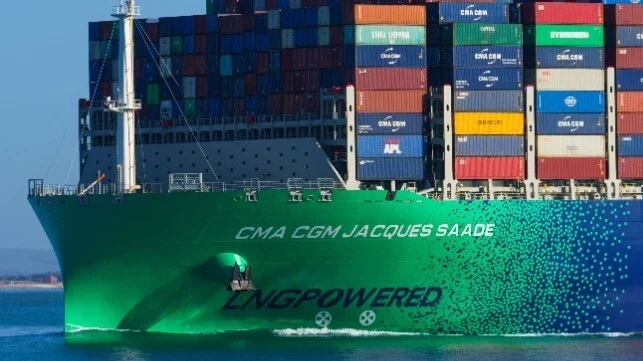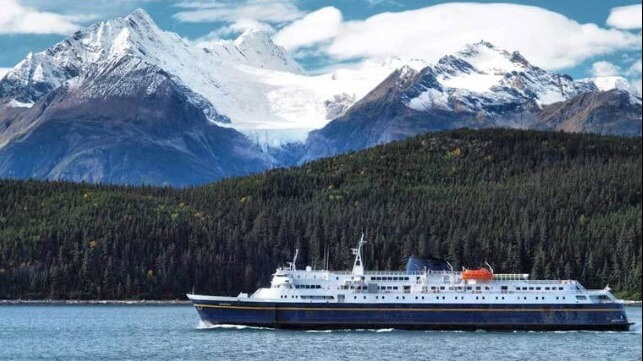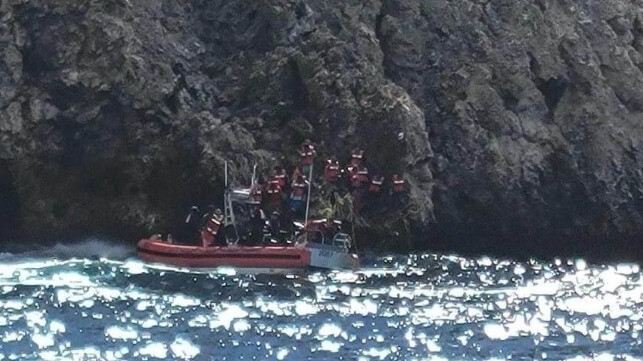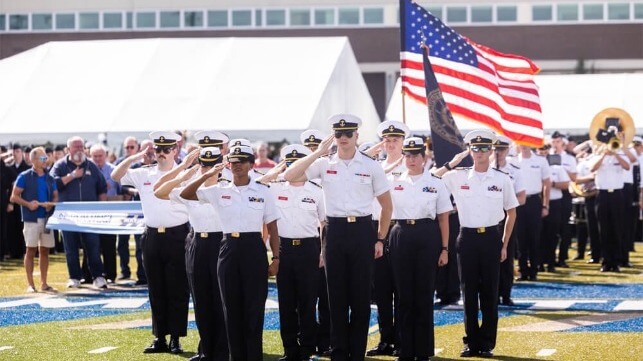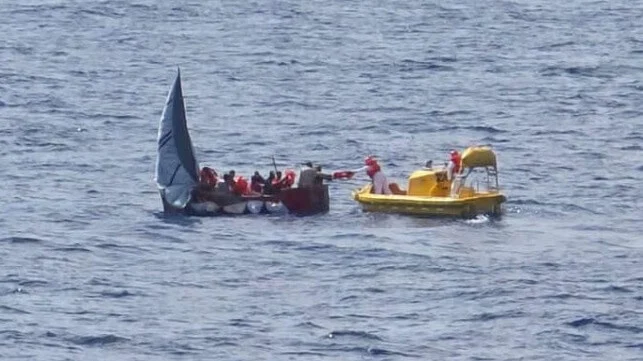
Steve Cotton
Liverpool is home to a number of ships adopting the United Kingdom flag in a sign that the island nation could once again claim its place as a maritime leader. But shipping companies will need to do more to uphold the UK’s reputation amidst the crew change crisis, says the International Transport Workers’ Federation’s Inspector Tommy Molloy.

In October 2016 the Port of Liverpool celebrated the flagging of a new ship belonging to Atlantic Container Line (ACL) to the UK register. It was one of five ships which were registered in the Port of Liverpool. Britain’s Princess Anne visited the port to christen the newest vessel, the Atlantic Sea, at the time. It was the first time in the last 50 years that a member of the Royal Family had christened a vessel in the port. ACL Managing Director Ian Higby said “Few ships have carried the city’s famous name in recent years, and it is good to see it back where it belongs”.

Tommy Molloy
But Tommy Molloy says ACL must act on the current crew change crisis to get its seafarers home, if the company is to live up to the standards of the UK flag and the uphold Liverpool’s reputation as a world-class port.
“The company has had a decent reputation in the past and the seafarers have valued their employment with them. But you have to be concerned when crew contact you anonymously begging for help to get them repatriated to their homes and families whilst remaining too scared to reveal their identities. Seafarers on board Atlantic’s ships are clearly worried about the repercussions they would face for refusing to continue to work once their contracts have finished,” said Molloy.
Under the Maritime Labour Convention, a seafarer has a right to stop working and be returned home at the employer’s expense once their contract has finished. The maximum a seafarer can be on board for is 11 months.
But exercising that right has become difficult, even impossible, for 300,000 seafarers whom the ITF estimates are trapped working aboard the world’s vessels. Another 300,000 seafarers are unemployed, waiting desperately to relieve those still on ships. The primary causes for the ‘crew change crisis’ are closed borders by port states, transit countries and the home countries of seafarers; as well as a lack of available flights.
Molloy says many seafarers across the industry won’t speak out for fear of not being re-employed and feel they have no option but to sign further and further extensions to their original contracts, even if doing so breaks the domestic and international rules.
Often, the ITF has to become involved to ensure seafarers’ rights are upheld. In the case of the Atlantic Container Line, Molloy had to untangle a web of ownership and contracting entities in order to help the mostly-Filipino crew enforce their right to get off.
“The owners of the vessel are listed as being situated in USA, the registered owners are in Sweden, the parent company is in Italy, and the managers are in Monaco. I contacted a number of them on 6 July to ask if they would be replacing those crew who had exceeded contracts when the vessel arrived in Liverpool, the ship’s home port,” said Molloy.
In an email, Molloy told the company that the UK considered seafarers to be key workers and that there were no impediments preventing crew from signing off in Liverpool. The company said that there were difficulties with organising flights into and out of the Philippines.
“They told me they had tried and failed to source flights from the UK to Manila. I found and sent them details of available, albeit expensive, flights from Manchester and London and told them they had many options for replacing those seafarers – there are 300,000 around the world waiting to get contracts,” said Molloy.
“They told me this would not be possible due to operational and vessel familiarisation issues and would be unsafe. I reminded them that the industry was collectively screaming at uncooperative governments for allowing the unsafe situation of crew on board way beyond the expiration of their contracts. Some of these seafarers haven’t been ashore in a year – how safe can that be?,”
Thanks to the ITF’s efforts, on 19 July five crew signed off the vessel in Liverpool and were relieved by Bulgarian seafarers, who then crewed the ship.
Molloy says that the Filipino off-signers stayed in hotel for a number of days before taking flights home to see family they had been missing for months.
But sadly, not all the crew felt confident enough to risk the ire of their employers by asking for repatriation. Molloy reveals that the ACL vessel departed Liverpool for Canada with a number of Filipino crew who have been on board for almost 15 months, far longer than their originally contracted nine months.
Molloy explains “They had contacted ITF head office in London, and our Inspectors in Germany, Antwerp and Liverpool, begging us to get them off. But they did so anonymously, without revealing who they were. Unfortunately, we need seafarers to openly request their repatriation. That’s the only way we can help get them off in ports like Liverpool and ensure they get home.”
“The fact that these seafarers were too scared to put up their hands to stop working and request to go home is of great concern to the ITF. It also concerns us that some companies may be using the logistical difficulties of the current crisis to make excuses for not doing crew change,” said Molloy.
“We understand that flights are expensive right now, and that’s why are advocating for more to be made available with the help of governments. But expensive flights are no reason to delay repatriation in the hopes that they become cheaper. Employers have responsibilities under the Maritime Labour Convention to get seafarers home after they’ve finished their contracts – and employers are still making money during this pandemic. Delaying further would be a slap in the face to seafarers after the loyalty and patience they have shown throughout this crisis.”
“We know the impact that being trapped working aboard these vessels is having on the mental and physical health of seafarers. It’s not acceptable nor sustainable to have them separated from their families – often without communication facilities – for far longer periods than they originally agreed to. I would suspect that suicide is now the main cause of seafarer fatality. Employers need to take every chance they have at repatriating and relieving their crew, before it’s too late,” said Molloy.




